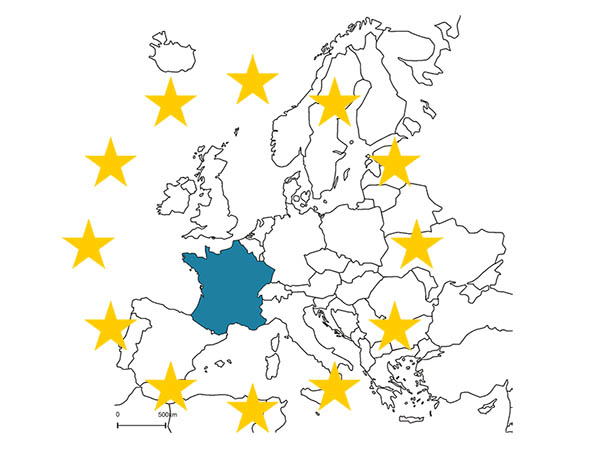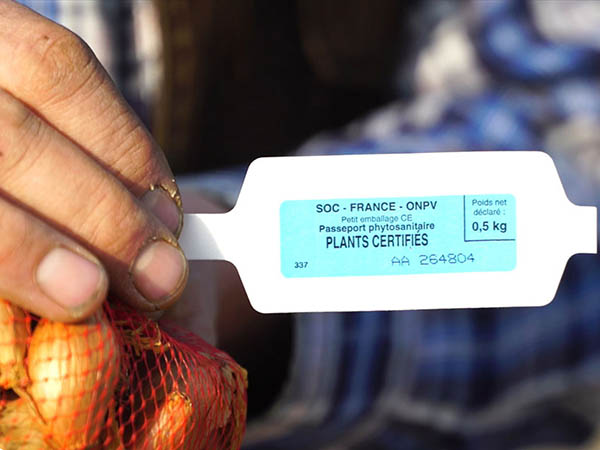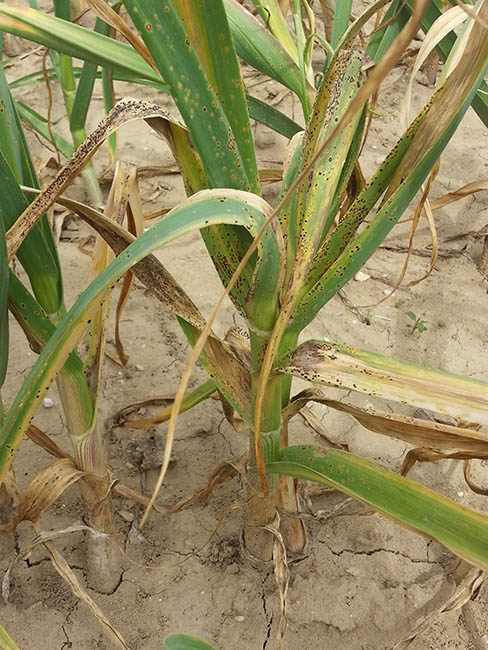Control and certification of garlic and shallot plants is warranty of quality and varietal identity. The French standard is more strict than European Union standard.
This two standards are present on French gardeners market , but to be sure of plants quality it is recomme to choose certified plants. They are easily recognizable with the blue label or sticker of the Official Inspection and Certification Body (SOC). This certification was desired by the French public authorities and professionals to guarantee a high level of health quality of productions.
Garlic and Shallot are multiplied by vegetative reproduction rather than by sexual reproduction (seeds), that why the risk of disease transmission is higher. Whether for a farmer or a gardener, the certified plant really increase success luck of harvest.

What are the guarantees of the French Certified Plant?

To be certified a plant need respect requirements of technical regulations for certification :
- Maximum rate of mosaic virus diseases (OYDV et LYSV) : 1%
- Maximum rate of white rot (Sclerotium cepivorum) : 1%
- Maximum rate of nematode (Ditylenchus dipsaci) : 0%
- Maximum rate of damage that affects germination : 5%
- Minimum rate of germination : 85%
- Maximum rate of other variety : 1%
- French production
For more information about production requirements, you can consult the page monitoring and production.
Primarily the certified plant is a security for the farmer and the gardener. Certification provides four primary guarantees to increase success luck of growing and therefore to have a very healthy and abundant harvest.
- The guaranteed of varietal identity/purity
- The guarantee that the plants will germinate well
- The guarantieed of plant healthy
- The traceability of production
Shop-bought garlic and shallot should not be used for planting
Shop-bought garlic is often imported (China, Mexico…), and is not always adapted to local climate. Furthermore, it has often been improved in order to enhance its storage qualities, and for this reason it may fail to germinate.
This type of garlic may also be a vector of diseases (viruses, rot, nematodes) which can reduce yield at harvest, alter storage qualities, contaminate soil and affect subsequent crops.

